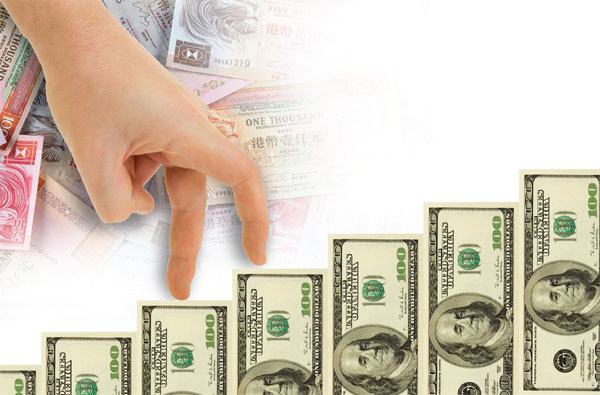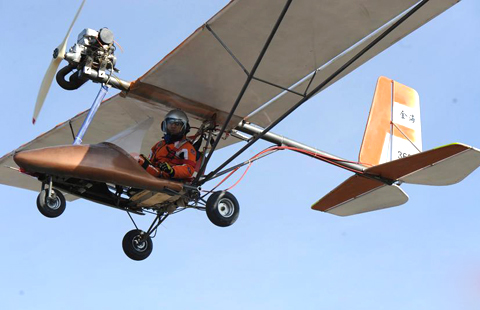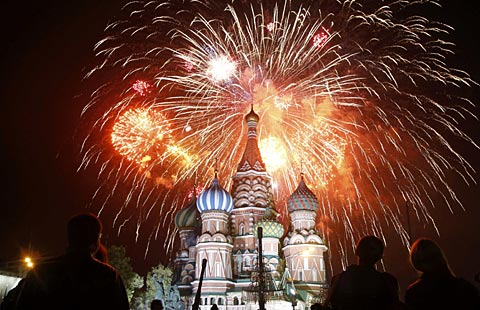Counting the costs, dollar for dollar
Updated: 2015-05-08 07:38
By Oswald Chan(China Daily USA)
|
||||||||

A stronger HK dollar courtesy its peg to the greenback has sparked warnings of slower local growth this year, the fears compounded by the prospect of an imminent US interest rate hike and its impact on the SAR's housing market. Oswald Chan reports.
The US Federal Reserve's (Fed) termination last year of its quantitative easing (QE) program and strong indications that it will likely hike interest rates in June at the earliest have pushed the greenback to new highs against major currencies since the second half of 2014, with the broad US dollar index rallying 10 percent in the latter half of last year.
The US dollar is enjoying its fastest rise in 40 years, according to Citibank. Since the start of 2015, the greenback has appreciated about 14 percent, Bank of America Merrill Lynch said.
And the rally will be sustained, predict investment banks.
Financial services provider BMO Capital Markets said the 2014 show of strength by the US dollar has yet to run its course and the currency could gain another 5 to 15 percent this year.
It also said the timing of US dollar appreciation should be concentrated around the first interest rate hike by the US.
Deutsche Bank, meanwhile, predicts that the euro will continue to fall to reach parity with the US dollar by the end of 2015 and even slump to 85 US cents per euro by 2017.
Given its peg to the greenback, that would mean a more expensive Hong Kong dollar, which would naturally cloud the SAR's economic outlook for this year. A strong greenback would make Hong Kong dollar-denominated goods and services appear more expensive and thus less attractive.
Office space and labor would seem much more costly to foreign firms seeking to set up shop in Hong Kong, and the city's allure as a tourist destination would be hurt, noted the Hong Kong Institute of Economics and Business Strategy under the University of Hong Kong (HKU) in its quarterly research report released in April.
Signs of concern
The negative contribution of external demand is mainly due to the sharp rise in the trade-weighted effective exchange rate, the HKU report said.
In other words, falling demand for the SAR's goods and services will negatively impact its economic growth.
The adverse effects, amid sliding exports and rising imports, would be felt gradually.
Second, more expensive goods and services would see tourists rethink plans of traveling to Hong Kong, curbing growth in retail sales value.
On the whole, retail sales value has posted a general decline since the second half of 2014 amid the central government's campaign against corruption and bureaucratic extravagance, the slowing mainland economy, changing consumption patterns of mainland visitors and the rising Hong Kong dollar.
A Citibank report last December cautioned that Hong Kong would likely witness slower consumption expenditure in the first half of this year amid fewer mainland tourist arrivals combined with lower spending per tourist, a trend that will likely hit mid- to low-end retailers the hardest.
"The extent of the impact of a strong Hong Kong dollar depends on how long the US dollar remains strong and how strong the other counteracting factors (recovery in global demand, for instance) are," said Wong Ka-fu, principal lecturer of Economics at HKU. "The effects of US dollar appreciation on the city's economy will likely be long-lasting and variable."
Third, a stronger greenback riding the prospect of interest rates hikes would dampen the Hong Kong property market, as higher mortgage rates may make prospective homebuyers postpone their plans or take a more cautious approach. This will curtail economic growth through the transmission of negative wealth effect, which means households will spend less because a falling home market effectively shrinks household wealth.
"If the US raises interest rates in the middle of this year as forecast, a rising interest rate environment would increase the downward price correction for the Hong Kong property market," said Banny Lam Chiu-kei, research co-head and chief economist at Agricultural Bank of China International.
"Local households paying off mortgage loans would face a heavy financial burden."
Also urging caution was HKU's Wong. "The general public should be warned of the potential downward risks in asset and property prices in view of the likely imminent interest rate hike. The downward risk in property prices is deemed higher because properties are often brought with a rather high leverage," he said.
Wong estimates the Hong Kong economy could grow 2.8 percent in 2015, close to the upper end of the government forecast, on support from local demand throughout the year and external demand in its latter part.
Western inspiration
The Hong Kong dollar was pegged to the US currency in 1983 under the Linked Exchange Rate System (LERS) when a crisis of confidence triggered a slump in the value of the local currency against the greenback.
Under the LERS, Hong Kong dollar stability is maintained through an automatic interest rate adjustment mechanism.
Since it took effect, interest rate movement in Hong Kong has had to match that in the US to preserve currency stability.
The US had slashed interest rates progressively to almost zero in a bid to revive its economy, battered by the subprime home loans crisis in 2008.
With US interest rates at ultra-low levels since 2008, the weak US dollar made the Hong Kong dollar relatively cheap, boosting the city's export sector, tourist arrivals and retail sales. It also fueled buoyancy in the local property and equity markets by attracting global capital inflows.
But that situation is beginning to reverse. And an interest rate hike would have an adverse impact on the Hong Kong economy by triggering changes in investment and consumption decisions.
The US Fed terminated its massive QE program in October 2014 amid an improving economy. Its three rounds of QE saw stimulus worth $3 trillion pumped into the US financial system, making the Fed balance sheet balloon from less than $1 trillion in 2007 to $4 trillion in 2015.
US interest rates are widely tipped to be raised in the middle of 2015 - in the first such rate hike since 2008. The US Fed dropped the word "patient" in its post-meeting statement for March, sparking speculation that interest rates may be raised during the June meeting at the earliest.
Financial Secretary John Tsang Chun-wah in his 2015-2016 Budget speech estimated the Hong Kong economy could only grow 1 to 3 percent this year as the economic outlook would depend on the pace of US interest rate hikes, rising deflation risks in Europe and Japan, as well as geopolitical risks and the effect of declining oil prices on crude exporting countries.
Contact the writer at oswald@chinadailyhk.com

 Ten photos you don't wanna miss - May 11
Ten photos you don't wanna miss - May 11
 Man successfully flies homemade plane
Man successfully flies homemade plane
 Beautiful images capture amazing Tibet
Beautiful images capture amazing Tibet
 Russian daredevils scale Ping An building
Russian daredevils scale Ping An building
 Super fit mother works out with her three children
Super fit mother works out with her three children
 Fireworks explode across Russia to celebrate Victory Day
Fireworks explode across Russia to celebrate Victory Day
 Mother's Day marked across China
Mother's Day marked across China Prince Harry receives Maori greetings in New Zealand
Prince Harry receives Maori greetings in New Zealand
Most Viewed
Editor's Picks

|

|

|

|

|

|
Today's Top News
China urges Pentagon to 'rationally' view military strength
Japan should issue apology to Asian states, ex-PM says
Saudi king to skip US-Gulf summit
US university teaches culture of selfies
Chinese president arrives in Belarus for state visit
China moves up to 17th in global tourism survey
Indiana governor going to China
for jobs
Wang Qishan highlights Party discipline in anti-corruption effort
US Weekly

|

|







